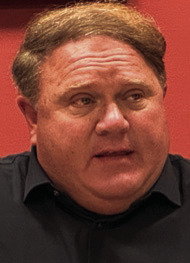Pushing tort reform
By Staff
August 11, 2002
Democratic state Rep. Walter Robinson of Bolton has summed up the debate in Mississippi over tort reform.
A funeral director and member of a legislative panel studying the issue, ostensibly in preparation for a special session of the Legislature later this year, Robinson told The Associated Press last week that lawmakers need to do all they can to keep doctors in the state. But, he said, lawmakers should move cautiously because he doesn't want to limit people's rights to sue if they or their family members are hurt.
You can't put a price on a mama in pain,'' Robinson was quoted as saying. Everybody is thinking about if it's the other fellow that's affected. Sometimes you need to look at it what if it's your family?''
That is precisely the type of emotional argument we have to get past if the law is to be truly fair and impartial. Isn't justice supposed to be blind? Aren't verdicts supposed to be based on evidence and the law? Aren't trials supposed to separate fact from fiction?
In a better civil justice system, jury verdicts would not be based on emotions of the moment and, thus, Robinson, perhaps unwittingly, has made a strong case for why tort reform is so essential to Mississippi's future.
Unfortunately, in the current civil justice climate, emotionalism rules, fed by a river of contentious ill will between two affected professions the law and medicine. Political emotions are running high and voters are trying to sort through it all.
Of all the subjects President Bush touched on during his few hours in Mississippi last week, the most politically volatile is tort reform. The president raised the profile of what some like to think is little more than a difference of opinion between rich doctors and rich lawyers.
It's more than that.
It's about fairness and, ultimately, justice blind unemotional justice.
And now that the president has elevated Mississippi tort reform squarely into the middle of the national political stage, the stakes are even higher. For a few weeks at least, restoring some sense of balance to a civil justice system that is running amuck may very well the central issue of the campaign in the 3rd Congressional District.
Both U.S. Rep. Ronnie Shows and U.S. Rep. Chip Pickering have positions on a central element of tort reform, capping non-economic damage awards. Shows is against it. Pickering is for it. Bush suggested a $250,000 cap on punitive damages and that's probably about right. Successful litigants could still recover actual damages.
Two predictions in the wake of the Bush's comments:
Shows will get a lot more money from trial lawyers and their affiliated groups who adamantly oppose tort reform.
Pickering's campaign will get a lot of money from people and political action committees that support tort reform.
The election is Nov. 5
Reformers in Mississippi could not have found a more articulate messenger than a popular president He left no doubt which side he's on.
Whether the president's comments will have any impact on an expected special session of the Legislature later this year remains to be seen. But my guess is he brought the issue front and center in the minds of many Mississippians and their doctors and businesses. He explained why people suffer when doctors leave the state because of the high cost of medical malpractice insurance because of "junk" lawsuits.
It's a modern day domino effect, a vicious cycle that, ultimately, could leave many Mississippians without quality health care. Mississippi's current civil justice system is more likely to line the pockets of a handful of aggressive trial lawyers than it is to produce "justice."
Tort reform, particularly the issue of caps on punitive damage awards, need not be so contentious. It's pretty straightforward.
And, ultimately, business people who say they don't care to dirty their hands with politics for fear of alienating customers are nonetheless going to have to make a decision and take a stand either by their votes or by their silence.













